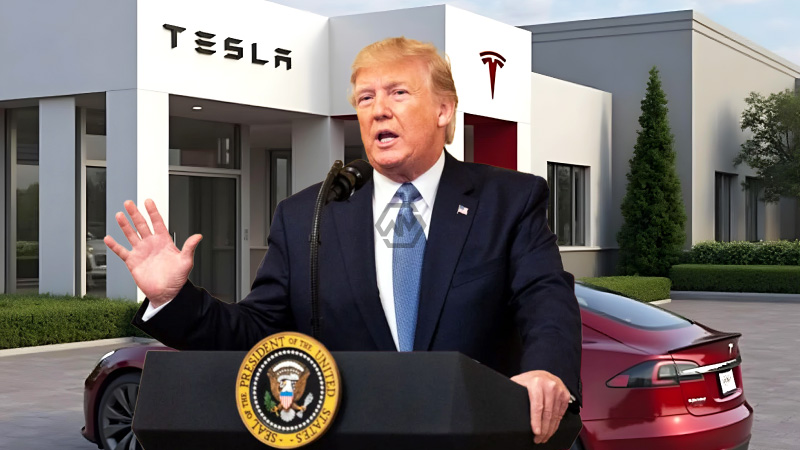- Donald Trump criticizes Elon Musk’s plan to build a Tesla factory in India, calling it unfair to the US.
- India’s new EV policy lowers import tariffs if manufacturers invest at least $500 million locally.
- Tesla is already scouting locations for showrooms in India, signaling serious expansion plans.
Trump’s remarks reflect his long-standing concerns about trade imbalances and foreign tariffs. He argues that countries like India impose high duties on US products while benefiting from American businesses investing overseas.
However, Tesla’s move aligns with India’s push for local manufacturing. By setting up a plant, Musk can bypass steep import duties and access the growing Indian EV market.
Trump Opposes Tesla’s India Plans, Cites Trade Imbalance
Tesla’s expansion into India isn’t just about reducing tariffs—it’s also a strategic move to tap into a rapidly growing EV market. India’s push for electric mobility, along with government incentives, makes it an attractive destination for global automakers.
Elon Musk has repeatedly expressed frustration over India’s previous trade barriers, which made Tesla’s entry nearly impossible. The revised EV policy now offers a viable pathway, making India one of the most promising new markets for Tesla.
From a US perspective, concerns about companies offshoring production are valid, but Tesla continues to expand in its home market as well. The company is building new facilities in Texas and Nevada, balancing global expansion with domestic growth.
Trump’s criticism reflects broader trade concerns that have fueled his economic policies. If he returns to office, his approach to international business investments like Tesla’s India move could lead to new trade negotiations or even potential retaliatory measures.
Tesla’s India expansion is driven by market potential and tariff benefits, but Trump’s comments highlight the ongoing political friction over global trade and economic strategy.
“The problem with tariffs is they often backfire, hurting domestic businesses rather than protecting them.” – Economist Milton Friedman



